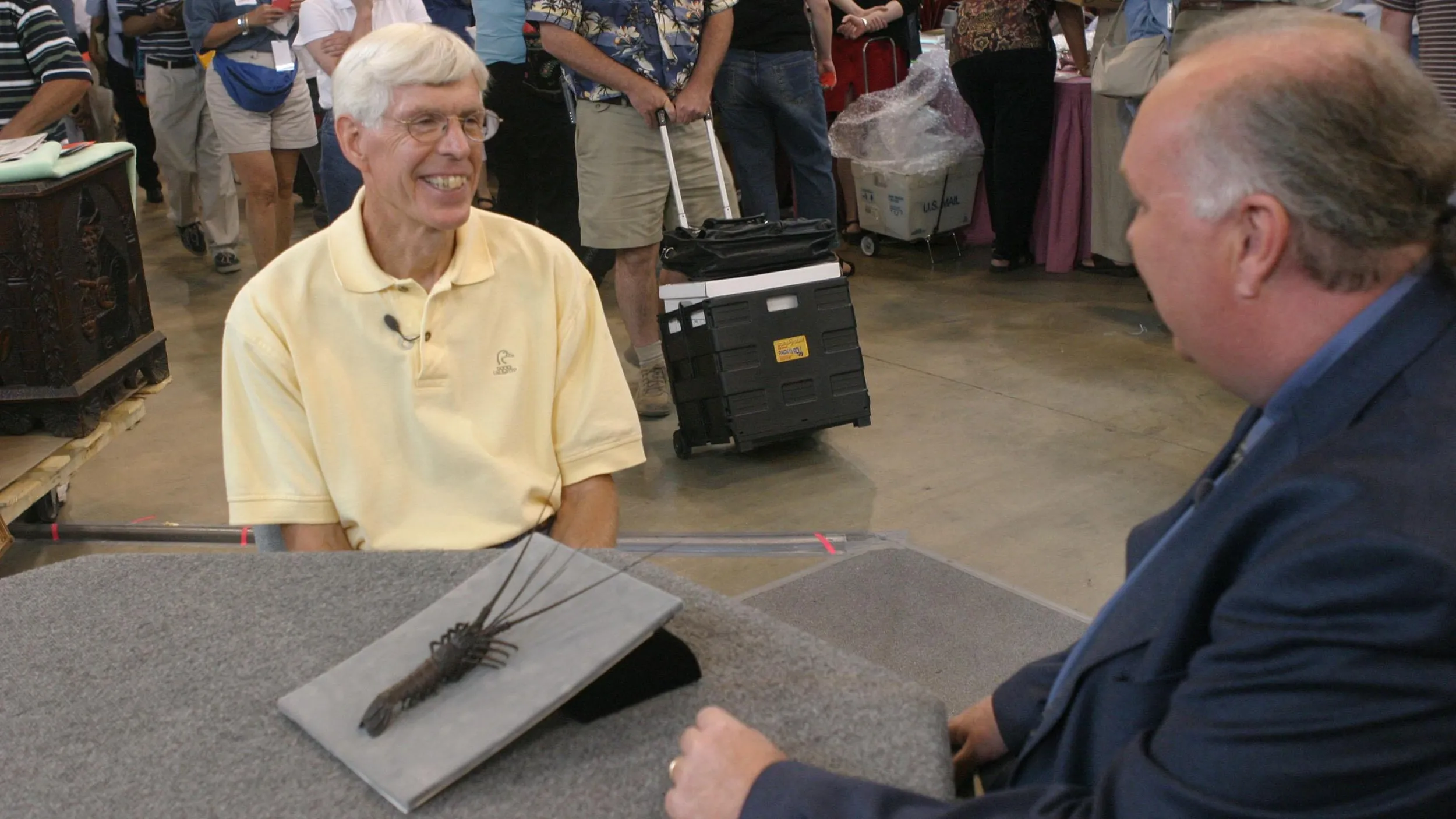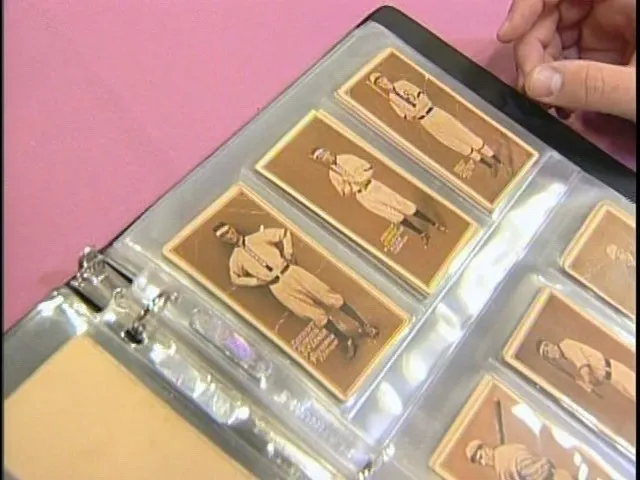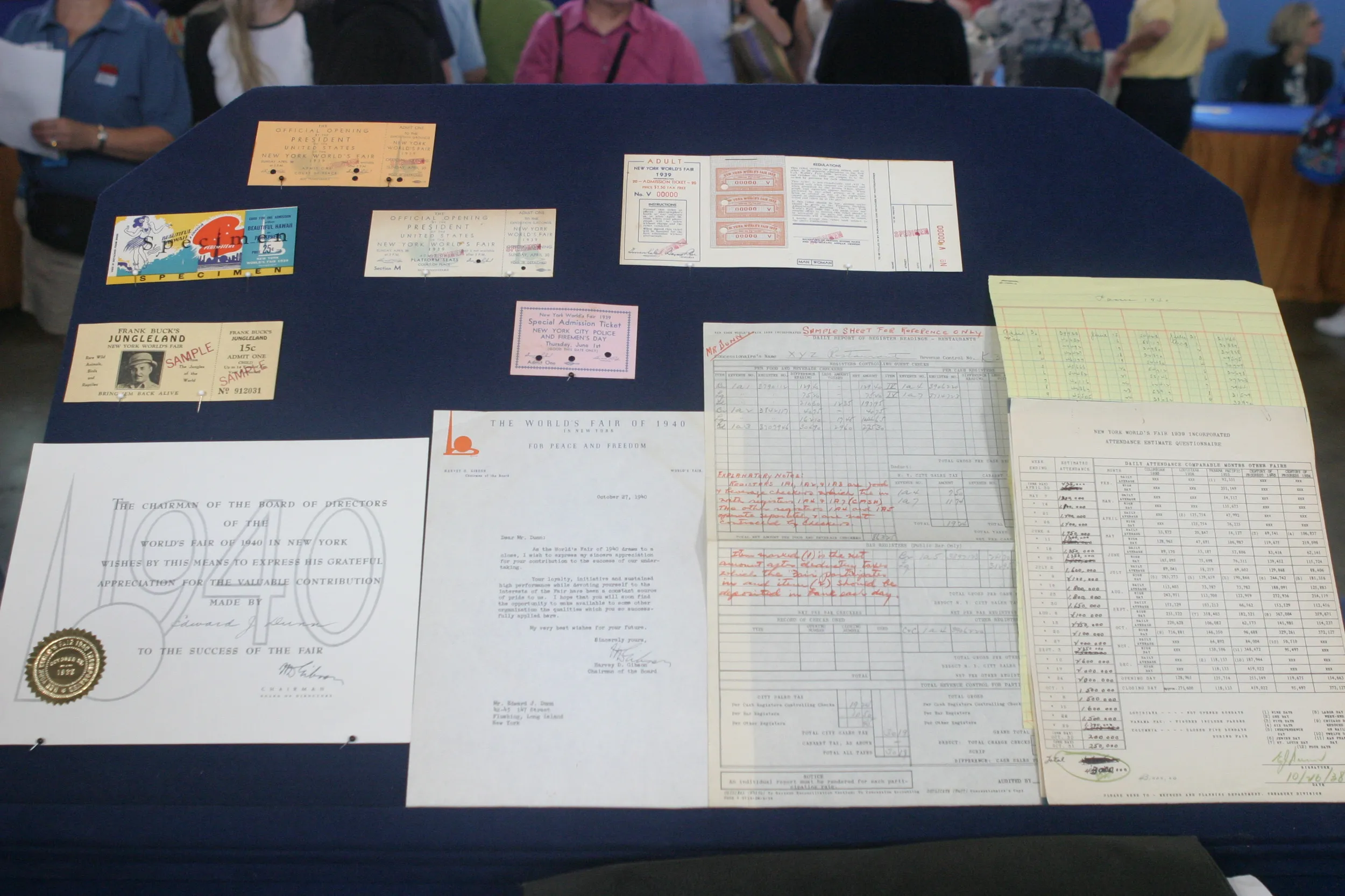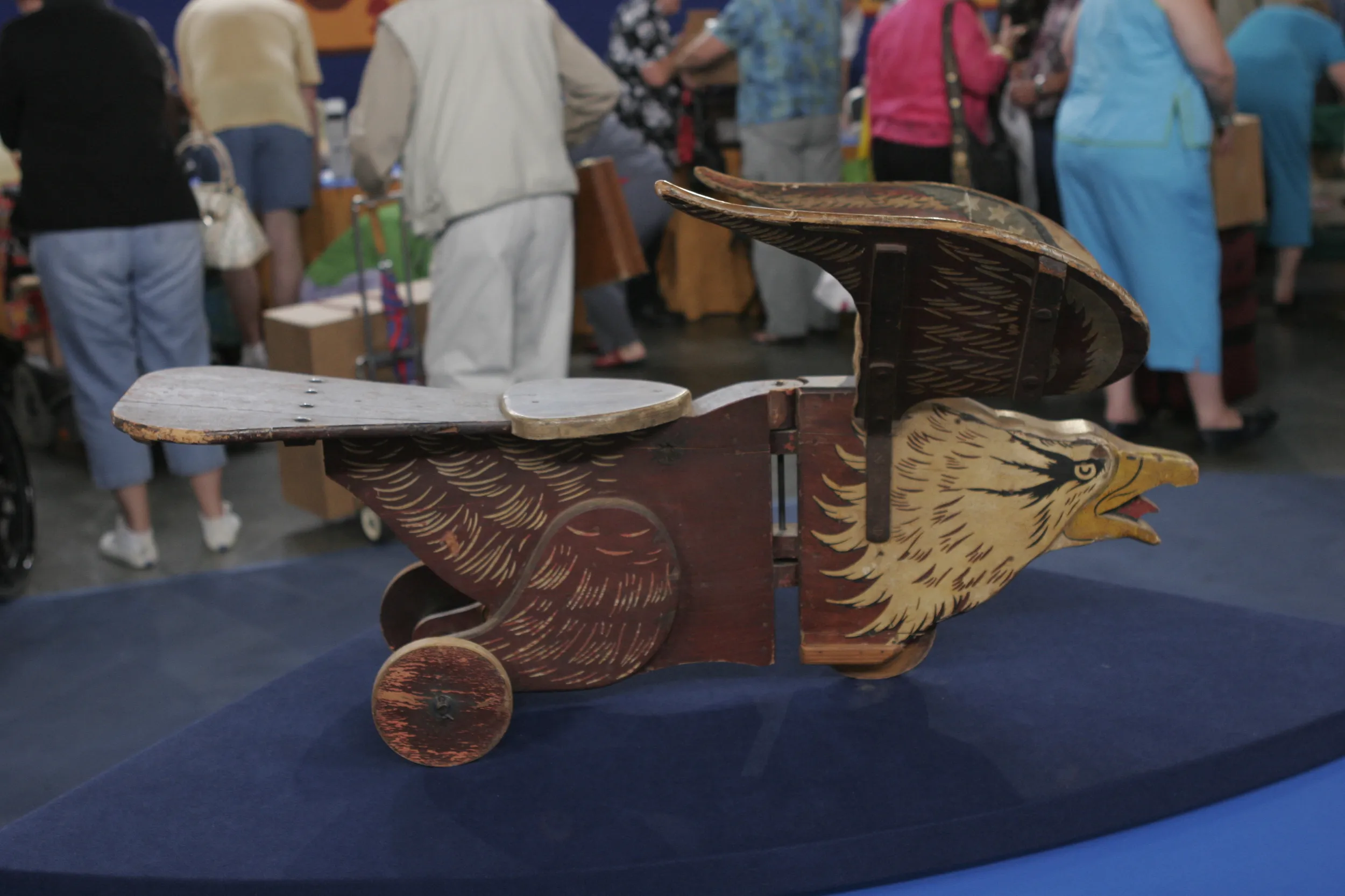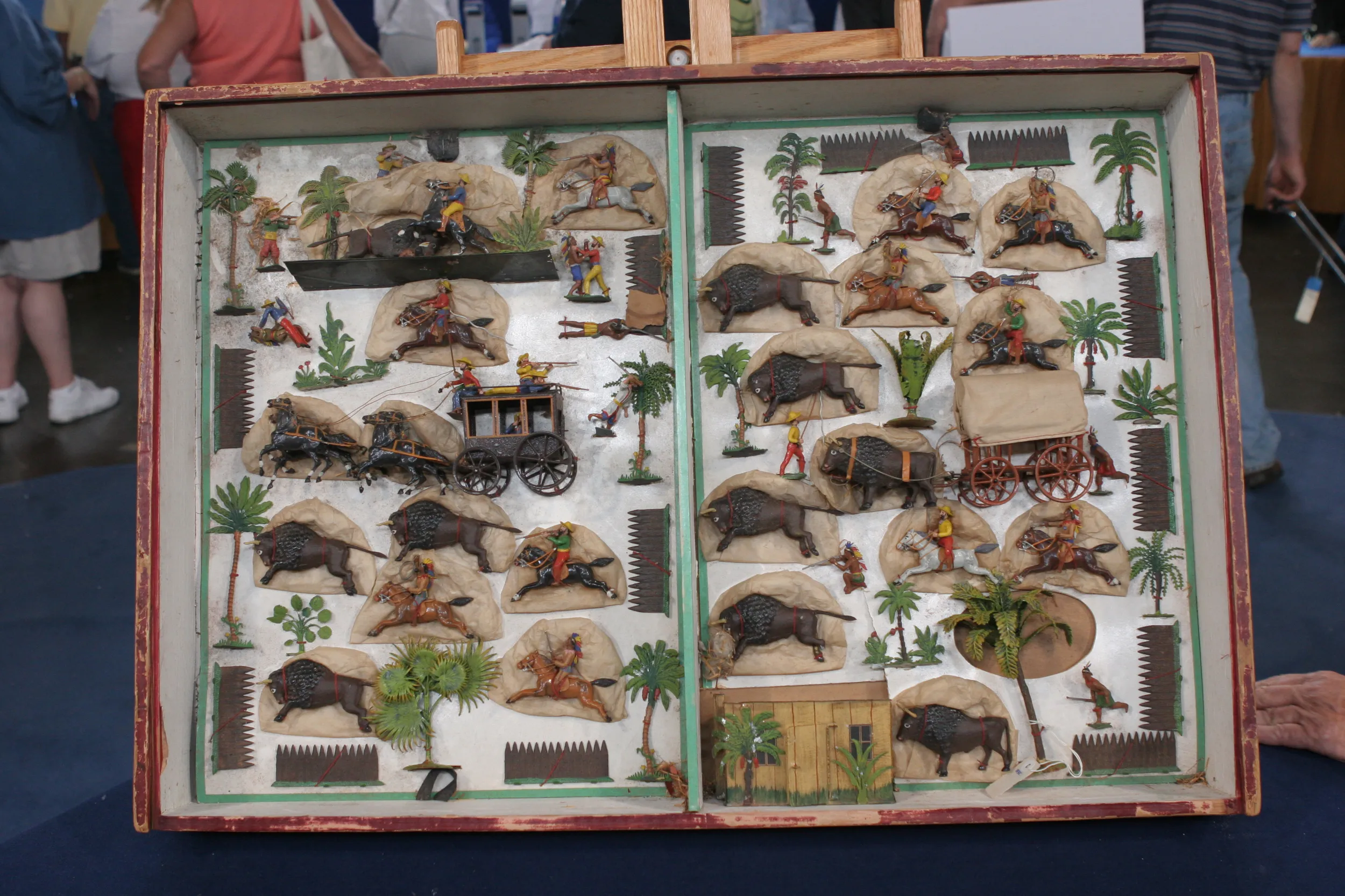GUEST: We were at this estate sale in the Highland Park area. I noticed the oak frame, and I proceeded to wipe off the glass. It was quite soiled. And I seen some of the artwork here, and a portion of a baseball field.
APPRAISER: So what was the princely sum that you paid?
GUEST: He was quite adamant about the price. It was $20 firm.
APPRAISER: This is actually what they call a presentation piece, and this was given out to celebrate the fact that the Cubs had won the World Series in 1907 and 1908, the first team ever to do that. Of course, the World Series started in 1903. This presentation piece is actually a photo of West Side Grounds, and it shows here all the players from the 1908 team. This was given out to players on the team, and it was given out to executives. This was the greatest decade that the Cubs ever enjoyed success, but they haven't been to a World Series since 1945, and they haven't won since 1908. Let me tell you a little bit about the cast of characters. First guy up, we have Mordecai Brown. Mordecai was also known as "Three Finger," because he was at his uncle's farm and his hand got caught in the corn shredder, and it actually took off his finger right down to the nub here in the second knuckle.
GUEST: Oh, my...
APPRAISER: Later, he fell and broke two other fingers, so his hand was like this. But for him, he could grip the ball better, and it would dip when he would throw it. He was actually Christy Mathewson's great rival in the early 1900s. He pitched a shutout in the 1907 series, and in 1908, he won twice. So he was a huge component of this team in pitching. Now, defense. You may have heard of Tinker to Evers to Chance.
GUEST: Yes.
APPRAISER: Joe Tinker, shortstop, Johnny Evers, second baseman, Frank Chance, first baseman. They're probably the best-known double play combination. The funny thing was, they were together for ten years-- they did not get along. In fact, Tinker and Evers didn't talk to one another for 33 years after they had an argument in 1905 over cab fare. But Frank Chance went on, and he managed the team, and he played. So you can see, they had a magnificent team here. And their era really ended in 1910, when they lost to the Philadelphia A's. This is valued at about $5,000.
GUEST: Oh, my. That's shocking-- that's amazing.
APPRAISER: But if it were in great condition, $20,000.
GUEST: Oh, my gosh.

